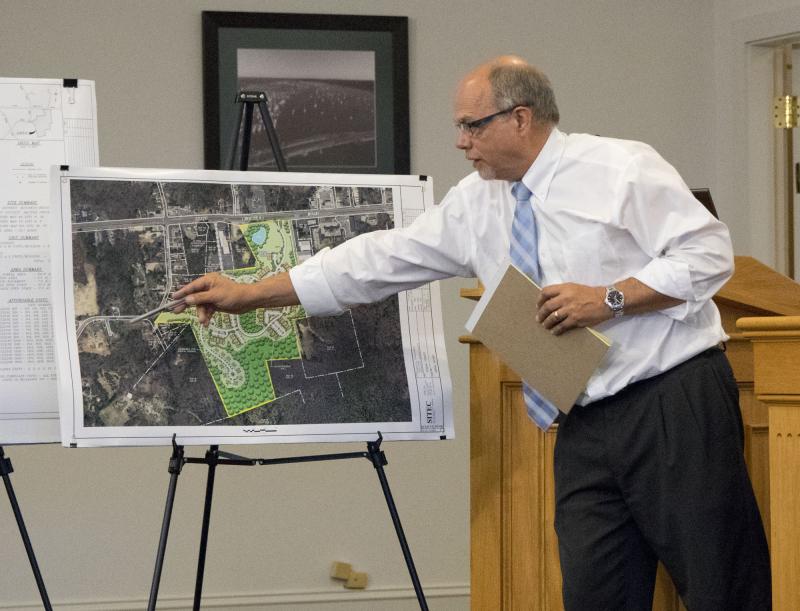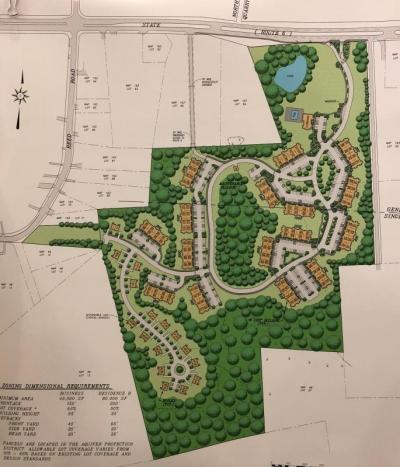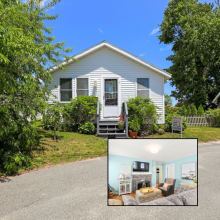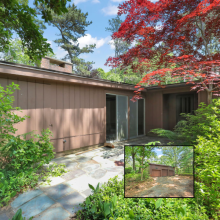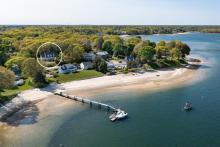Few details, complaints at public hearing for Dartmouth affordable housing project
A proposed 288-unit affordable housing complex near State and Reed Roads drew concerns about parking and environmental contamination from town officials, but residents had few complaints at the first public hearing on the project.
The August 7 hearing at the Zoning Board of Appeals began what will likely be a multi-month process for First Dartmouth, LLC to secure a “comprehensive permit” to build the complex. Proposed under the state’s Chapter 40B affordable housing law, it allows developers to bypass certain town zoning requirements if the town’s housing stock deemed “affordable” is below ten percent. In Dartmouth, 8.2 percent are considered affordable.
At the first public hearing, project developers and attorneys said more finite details about the project — like a traffic study and environmental engineering — are still under development. However, attorney Robert Feingold presented the board with a broad overview of the project.
The developers — who also own the nearby Dartmouth Woods apartment complex —are proposing to build 16 buildings containing 16 two-bedroom apartments each, and 16 duplex buildings containing three-bedroom apartments on the 59-acre site, Feingold said.
Access would be through Route 6. A previous version of the plans unveiled to the Select Board earlier in the year included a secondary access point for emergency access on Reed Road, but the road has been completely eliminated from the plans amid concerns from residents about traffic.
Of the 288 units, 64 two-bedroom units and eight three-bedroom units would be classified as “affordable,” meaning maximum rents are set at a percentage of the median income of the region. Maximum rents of these units would be $1,133 for the two-bedroom and $1,309 for the three-bedroom units, respectively. The remaining units would be offered at market rates, ranging from $1,484 for the two-bedroom units to $2,000 for the three-bedroom units.
Director of Public Health Christopher Michaud said in a letter the land is classified by the state as a “release site,” meaning there are known releases of toxic chemicals on the property. The land was once used for auto repair, junkyards, old fuel storage, asphalt dumping, and marine storage.
In his letter, Michaud said the developers have not yet submitted documents to his office to allow the department to ensure the project conforms to the department’s recently established land redevelopment regulations. Until an assessment is complete, Michaud said "this office expresses the utmost concern for the proposed residential use."
Steve Gioiosa of SITEC Engineering said he had been working on the cleanup of the site for the past 14 years with its original owners, and stressed that further data will be provided in a more comprehensive report in the coming months.
“There’s been an awful lot of talk about environmental concerns,” Feingold said. “I can assure you that every single requirement of the law that applies to those environmental concerns will be addressed and complied with.”
The buildings would connect to the town’s water and sewer systems, and Gioiosa said there are concerns with the project’s impact to the town’s sanitary sewage system, but developers are working with the Department of Public Works to ensure the project does not overtax the system.
Planning Board Chairman Joel Avila asked to ensure the project’s parking plan meets the town’s parking requirements, and Conservation Officer Marc Garrett said in a letter his department needs to see drainage and stormwater plans to review.
The public hearing will continue on September 11 at 6 p.m. at Town Hall. The focus of the next hearing will be on traffic, at which point a comprehensive traffic analysis should be ready.
As for deadlines, the Zoning Board of Appeals has 180 days to close the public hearing, and 40 days after that point to issue its decision. The deadline can be extended if both parties agree, however.



